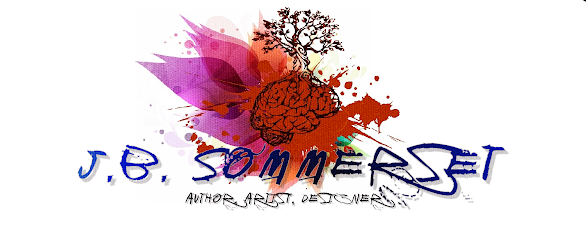The truths in your writing...
One of my goals with this new website, is to start at the beginning, or at the very least convey some perspective on my experience with the craft of writing. I want to tell people what I have learned along the way, and also give some perspective and history about story telling.
Firstly, to all aspiring writers, I must say this: writing is a practice and the more a person does it the better they will get. But knowing how to write doesn't make a person a great writer, it means they can write well.
So, with that in mind, what makes a great writer?
When I started writing as a teenager, my goal was to write the great American novel, get published and not have to work a traditional job to make ends meet. I liked to write, but I was too young to have any stories to tell, or so I thought (much of writing is uncovering things). I wrote all the time. I finished my first novel when I was seventeen, an endeavor that took me two years and 721 pages to complete. It is still unpublished. I thought is was a masterpiece, it was in fact not a masterpiece, a lesson I learned the hard way, oh my fragile ego!
Back then, life wasn't kind to me, and although it didn't make me rich, writing became my salvation, and my refuge. It was a place I could hide from the day after washing dishes for 6-10 hours. But, I still wanted to write that novel, get published and become an author. Life doesn't always give us what we want. But I kept trying, I kept writing with a single thought in mind:
If I keep practicing, I will get better at it and eventually I will get noticed.
It's a good notion, the right direction. It takes a lot of practice to make something of yourself. This same principle, the principle of practice, has been exercised by all the greats. However, it takes more than that.
Part of writing is the ability to capture universal truths and present them in a way that everyone understands. The best writers know this and won't write something until it conveys a message the audience will identify with. The greats may write all the time, but they only publish if it can be read as such; containing a great universal truth (or several of them).
A truth can be anything that substantially affects the reader in some way. It can be the words and the way it is written, it can be the feelings they instill, it can be an argument presented. It is something conveyed through the art of writing that conveys a truth.
When I was seventeen, I had plenty of truths but I hid them. Instead, I wrote about what I thought everyone else wanted to read. I wish I would have known back then; if everyone else is writing the same thing, therein is the chance to shine by being different.
Here's an example:
I was impoverished as a child, I slept on the floor in a small cabin, on a makeshift bed of layered blankets in a corner of the house. I was embarrassed of this, I was bullied for it, and people didn't understand. However, it's compelling, it's real, and it's gritty; it's my truth.
So why did I avoid it in my writing?
Simple, because I was scared to talk about it, neglect and abuse often are. I wasn't alone, people would have understood and the stories I could have told would have been good ones. Who knows I may stil write them yet.
But I moved forward, and those things I never wanted to talk about are becoming the best parts of my writing. Writing is also a good outlet, a good place to figure things out. Its a good space to vet the compelling and unique parts of myself that need to be freed. That room, that place, is where all the relatable truths hide. Some of them are in my second book, To Kill them Softly. I would add, it was much better than my first book. It is published, but it took me eleven years to get there and it came after I published other works.
So let's establish this simple place to start when learning to write, a rule number one:
Your truths mean more to your writing than any of the ways you dress them up. Write your truths, and learn to write them well, no matter what genre you choose to put them in. Without them, your writing might be good, but it will never be great.
Cheers!


